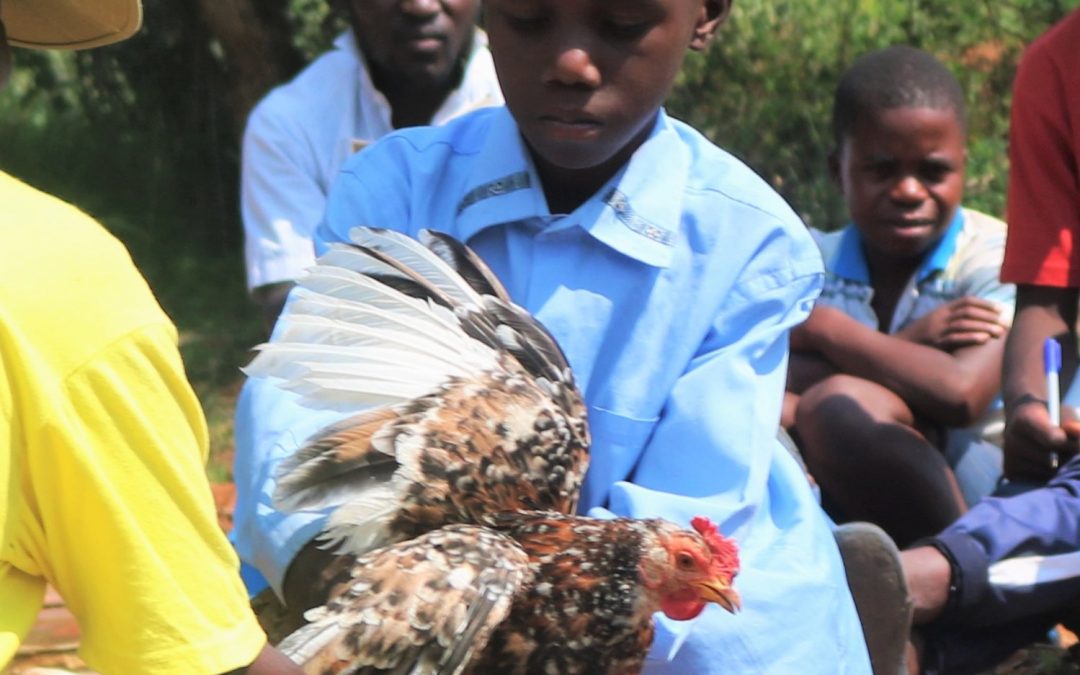
by dapp | Dec 8, 2020 | Blog, News
Sign of Hope has partnered Development Aid from People to People (DAPP) in implementing the Farmers’ Clubs Mutasa project targeting 100 small holder farmers. The project is aimed at contributing towards reducing the vulnerability of smallholder farmers’ agricultural production to climate change in Mutasa district, Manicaland Province, Zimbabwe.
The project has begun capacitating 100 smallholder farmers in Mutasa district to adapt to climate change through the promotion of climate-smart agriculture and organic farming practices, livestock husbandry practices and access to viable markets.
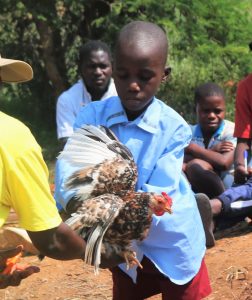 The Farmers, organized in 2 Farmers’ Clubs are receiving trainings in climate smart and resilient agriculture production. The farmers will also be strengthened in small livestock production to increase nutrition diversity.
The Farmers, organized in 2 Farmers’ Clubs are receiving trainings in climate smart and resilient agriculture production. The farmers will also be strengthened in small livestock production to increase nutrition diversity.
The project is working closely with government 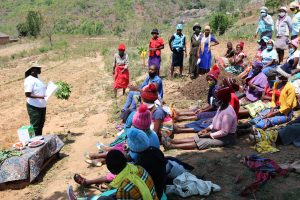 departments such as AGRITEX on horticulture production training and marketing while the Veterinary Services are engaged in small livestock production training. The beneficiaries will also benefit from Ministry of Women Affairs, Community Small and Medium Enterprises training in Internal Savings and Lending (ISALs) trainings.
departments such as AGRITEX on horticulture production training and marketing while the Veterinary Services are engaged in small livestock production training. The beneficiaries will also benefit from Ministry of Women Affairs, Community Small and Medium Enterprises training in Internal Savings and Lending (ISALs) trainings.
The project is being implemented over a six months period from October 2020 and ending in March 2021
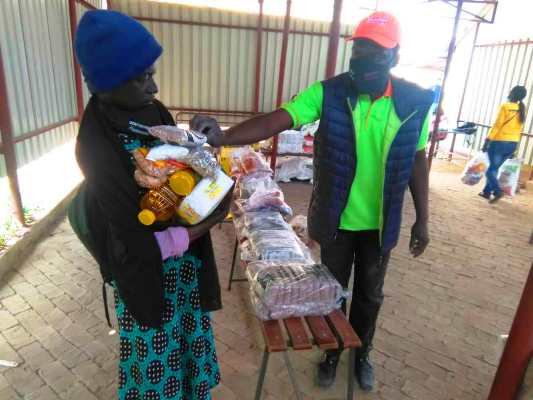
by dapp | Sep 7, 2020 | Blog, News
DAPP Zimbabwe has launched the Danish Emergency Relief Fund (DERF) supported Early Actions program. The Early Actions aim to contribute towards containing the spread of the COVID-19 epidemic and decrease morbidity and mortality among vulnerable people in Makoni District in Manicaland province in Zimbabwe. The project aims to reach 10 000 households at risk of contracting COVID-19 with correct facts about the epidemic and how they can protect themselves and each other .
Presenting the project at district sensitization meetings, Project Leader, Stailine Ruzvidzo said the main thrust of the project is to ensure that communities and people know how to prevent getting infected by COVID-19 and how not to spread the virus to others. This will be done through targeted information dissemination channels, outreach activities, screening and support for those affected. The intervention which is aligned with the Zimbabwe’s Humanitarian Response Plan (ZHRP) will work closely with the District Response Team and Ministry of Health and Child Care to identify those at risk and provide them with basic food assistance, COVID-19 screening as well as establish social support structures to stop the spread of COVID-19.
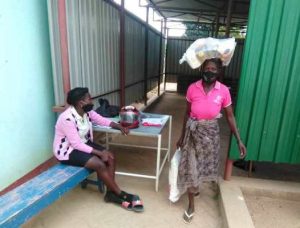
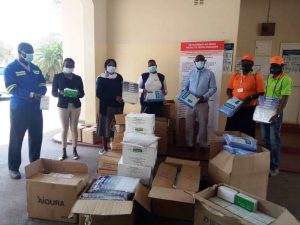
As part of measures to support vulnerable members of the community DAPP will establish water points to ensure that there is availability of clean water to maintain good hygiene. Community members will also receive skills training on how to establish and maintain vegetable gardens to ensure sustainability of food supplies. DAPP through this project will work closely with Rusape General Hospital to strengthen the established Isolation centre in the district, provide personal protective equipment for health care workers and donate a multi-purpose ambulance for patients and reaching hard to reach areas.
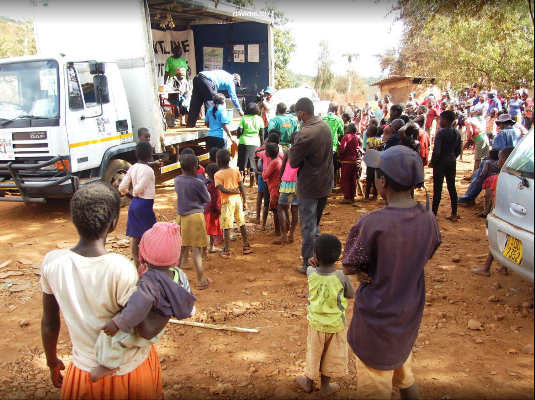
by dapp | Jul 27, 2020 | Blog, News
DAPP Zimbabwe in collaboration with the Ministry of Health and Child Care (Shamva Hospital) organized a COVID-19 awareness campaign in Shamva district targeting communities around Madziwa Rural, Cornerstore, Joking 8 and Wadzanai township. The campaign was conducted earlier this month
As the nation fights the COVID-19 pandemic DAPP Zimbabwe has taken public health and hygiene messages to the most vulnerable people using road shows. The campaign reached more than 5 000 people in semi-urban, mining areas and rural areas. 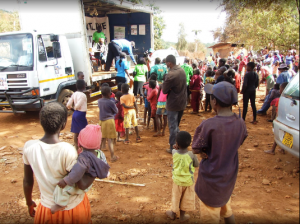
The initiative has enabled the dissemination of key messages on COVID-19 in one of the most effective and efficient ways particularly during the lock down period. There is good uptake of messages and information as the roadshow team moved through communities spreading messages using loud speakers.
The key messages emphasized COVID-19 transmission, prevention, hygiene, social distancing and other important health and well-being issues related to COVID-19.
The District Environmental Technician for Shamva District Mr Evidence Mufambi spoke highly on the collaboration between DAPP and the Ministry of Health and Child Care adding that it was critical for marginalized communities to have access to information on COVID-19 to stop its spread.
He added that proper hand-washing and correct use of face mask demonstrations were going a long way in ensuring that communities are protected.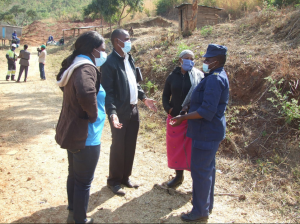 The campaign demonstrated the need for continuous organizing and supporting the community with relevant information about COVID-19.
The campaign demonstrated the need for continuous organizing and supporting the community with relevant information about COVID-19.
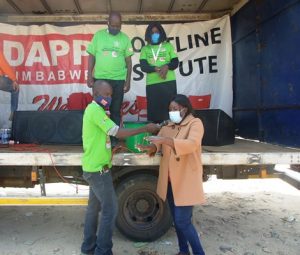
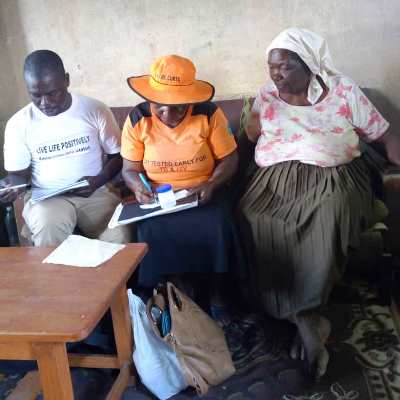
by dapp | Jul 14, 2020 | Blog, News
Development Aid from People to People (DAPP Zimbabwe) was the first member of Humana People to People to pioneer HIV/AIDS prevention work using the Total Control of the Epidemic (TCE) programme concept in 2000. Since then, TCE has reached nearly 1 million people throughout Zimbabwe, equipping them with the capacity to take control of their lives against the HIV/AIDS epidemic.
DAPP Zimbabwe recognises that people are responsible for their own health, but must be empowered to make the right decisions. People’s active participation in protecting their health can be done through community-based public health campaigns that reach out to individuals, groups and target populations.
The TCE Zimbabwe programme assisted nearly 700 000 individuals in developing a personal HIV risk reduction plan from 2000 – 2012. The model has enabled pregnant women to know their HIV status, get tested and receive counseling and undergo treatment. More than 50 000 pregnant women have received HIV support services to prevent mother-to-child transmission.
TCE has, over time, been funded by various partners; however, the first grant in Zimbabwe from USAID made it possible to provide evidence of a successful HIV model, leading to the interest of different national governments, and ultimately, expansion into 12 countries reaching 20 million people in Africa, India and China by 2017.
Today, DAPP Zimbabwe runs an HIV/AIDS programme, HOPE Bindura, reaching vulnerable populations with HIV prevention, treatment, and care services along the continuum of care. HOPE Bindura mobilises young mothers to attend and participate in pre-natal and ante-natal care sessions. Additionally, the project works closely with local clinics and hospitals; it coordinates with the Ministry of Health and Child Welfare to provide HIV services.
As of 2019, HOPE Bindura has engaged over 42 000 people in its community outreach work, with more than 25 000 referred for HIV treatment at various local health centers. 830 People Living with HIV were organised in community-based support groups to promote treatment adherence, receiving training in Internal Servings and Lending, and small livestock husbandry to improve their nutrition.

by dapp | Jun 15, 2020 | Blog, News
Gutu district, located in Masvingo district is predominantly located in semi-arid region which experiences erratic and uneven rainfall patterns. Coupled with Cylone Idai that destroyed people’s livelihoods, infrastructure, fields, livestock, food reserves many families were left in need of humanitarian assistance.
In an effort to increase resilience among populations affected by macroeconomic difficulties, Cyclone Idai and severe drought DAPP through funding from the Danish Emergency Relief Fund is implementing the Early Action program targeting 500 vulnerable and food-insecure households in wards 8 and 9 of Gutu District, Masvingo .
Project beneficiaries who include female headed households, people living with disability, elderly, pregnant and lactating women and the chronically ill received small livestock (chickens and goats ) as part of assets restoration. This will go a long way in improving food and nutritional security and poverty alleviation. Programs Coodinator Petros Muzuva says “Small livestock play an important role in rebuilding long term sources of incomes for families. The boschveld chickens and goats which are drought-tolerant breeds that are best suited for this region are fast multiplying.” He added that “Farmers will be supported to better look after the animals through provision of diseases prevention drugs, capacity building in improved animal husbandry practices, livestock breeding and management”
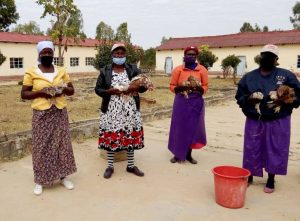

The early action approaches are also aiming to improve access to sufficient safe and clean water sources for people and their livestock through borehole rehabilitation and construction of water pens for livestock. This will ensure curbing of the spread of water –borne, bacterial and parasitic infections among people and their animals.
The project will run from March 2020 to August 2020

 The Farmers, organized in 2 Farmers’ Clubs are receiving trainings in climate smart and resilient agriculture production. The farmers will also be strengthened in small livestock production to increase nutrition diversity.
The Farmers, organized in 2 Farmers’ Clubs are receiving trainings in climate smart and resilient agriculture production. The farmers will also be strengthened in small livestock production to increase nutrition diversity. departments such as AGRITEX on horticulture production training and marketing while the Veterinary Services are engaged in small livestock production training. The beneficiaries will also benefit from Ministry of Women Affairs, Community Small and Medium Enterprises training in Internal Savings and Lending (ISALs) trainings.
departments such as AGRITEX on horticulture production training and marketing while the Veterinary Services are engaged in small livestock production training. The beneficiaries will also benefit from Ministry of Women Affairs, Community Small and Medium Enterprises training in Internal Savings and Lending (ISALs) trainings.










